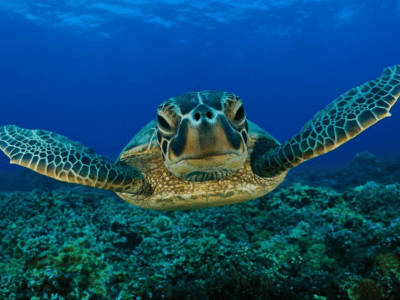Marine Zoology: Vertebrates Session 3 of 3

This is Part 4 of a 4 part marine zoology series. To take this course, you must successfully complete Marine Biology 101.
Marine Biology 101
Marine Zoology: Invertebrates Session 1
Marine Zoology: Invertebrates Session 2
CLASS DESCRIPTION
If you have a student aged 10-17 that has an interest in marine biology, this is the class you want! My degree is in Marine Biology (from Texas A&M University at Galveston), and marine biology was the very first homeschool class I ever taught. I have since branched out into many other sciences, but always love it when I can teach my passion—ocean life! This will not be a “fluff” class, or an “overview”—it is an intensive, science heavy class where students will learn marine biology from many different aspects—taxonomy, evolutionary relationships, anatomy, function, habitat, etc.
There will be dissections in this course. Students can watch me do the dissection online, and I will even give you instructions for obtaining specimens so they can follow along with their own dissection if they would like! Students who do not wish to participate in viewing the dissections may opt out.
CLASS FORMAT
No live classes—view lessons on YOUR schedule. In general, expect 1.5-2.5 hours to work through the lesson plan each week, and an additional 2-5 hours working on assignments (it really depends what assignment your child chooses to do and how they manage their time). For classes with two levels, the material is the same for both—the depth of the assignments differs. Younger students should usually be placed in Level 1. Older students, or younger students who want more of a challenge, should be placed in Level 2.
Each lesson consists of a fully narrated PowerPoint presentation with images and videos to enhance the topics. Students will have access to our learning management system, Canvas, for viewing their lesson, printing worksheets, taking quizzes, viewing/submitting assignments, participating in discussions, and viewing grades/feedback. Read more details about class format.
In this session, students will be focusing on 5 major groups of marine vertebrates:
1. Cartilaginous Fish:
No bones about it, cartilaginous fish are super cool! We’ll start with the super weird jawless fish, lampreys! Kids are always simultaneously fascinated and grossed out by this weird group! We’ll even get hands on with a dissection. Then, move into learning what makes skates different from stingrays, and do another dissection. Then, finish up with everyone’s favorite—SHARKS! We’ll explore them from every scientific aspect- evolution, taxonomy, anatomy, habitat, adaptations, conservation issues, and more! And…another dissection!
2. Bony Fish:
Did you know that bony fish are the largest vertebrate group on earth? The variety of adaptations are amazing, and we’ll spend a few weeks learning all about them. Did you know that clownfish can change from being a male to a female and back again? How about the fact that cute little pufferfish contain a toxin 1,200 times more deadly than cyanide? Those are just a few of the interesting facts we’ll cover. And of course, a dissection!
3. Reptiles:
Reptiles aren’t just on land! We’ll cover sea turtles, sea snakes, and the marine iguana (which is only found in the Galapagos!). There will be an awesome project that will track sea turtles on their migratory paths across the globe. We’ll learn what causes a baby sea turtle to become a male or female (hint: temperature!). Did you know that female sea turtles return to the beach they were born to lay their eggs, and that male sea turtles never leave the ocean? We’ll focus on all 7 species of sea turtle, and discuss the conservation issues surrounding them.
4. Birds:
Did you know that a sea bird has the longest migration of any animal on earth? And it’s a sea bird that has the longest wingspan of any bird on earth? From seagulls to albatross, penguins to puffins, we’ll cover these often overlooked group of marine animals!
5. Marine Mammals:
What’s the difference between a whale and a dolphin? What about a seal and a sea lion? Did you know the closest living relative to the whales are HIPPOPOTAMUS’?! We’ll cover these and many other fascinating topics as we work our way through the world of marine mammals! Manatees, sea otters, polar bears, seals, sea lions, walruses, dolphins, whales…WHEW! After studying their intelligence and emotional capabilities, we’ll then launch into a discussion on the pros and cons of keeping these animals in captivity.
I will be creating educational videos to accompany the course—many of these will be on site at various areas around southern California, both at the ocean and in some of our local aquariums. I’ll also be conducting virtual labs for the students, including dissections. Each week, there will be a choice of hands on projects for students to complete to reinforce their knowledge of the material.
If a link is provided, it is to show you the type of animal you need to order. Below is a list of sources where you can purchase specimens
Lamprey
Shark
Fish (or you can buy a whole fresh fish from your local seafood market)
I do not personally endorse any of these companies, nor do I receive any kind of compensation for listing them. I suggest you research the individual companies before purchasing. There are also other companies that sell preserved specimens. When given a choice of types, choose plain preserved (you don’t need injected ones).
https://www.homesciencetools.com
Next Level Homeschool is a firm believer that not all learning should happen from behind a screen! That's why we give students the freedom to submit their assignments in the way THEY want to! We don't want regurgitation learning here. By allowing students to use their own talents, skills, and passions to complete assignments, they become even more engaged and retain the information. Why? Because now it's literally in their hands! We receive thousands of projects every year from our students: written reports, videos, models, posters, Scratch, Minecraft, Roblox, songs, poems, skits, drawings, sculptures, crafts—we've seen it ALL! And WE LOVE IT!!
Click here to view just a few projects we've received from students who have taken this class and see what YOUR kid could be learning with Next Level Homeschool!
Course Features
- Schedule Feb 10 - May 12
- Activities Science
- Lessons 12
- Suggested Ages 10-17 Two Levels






